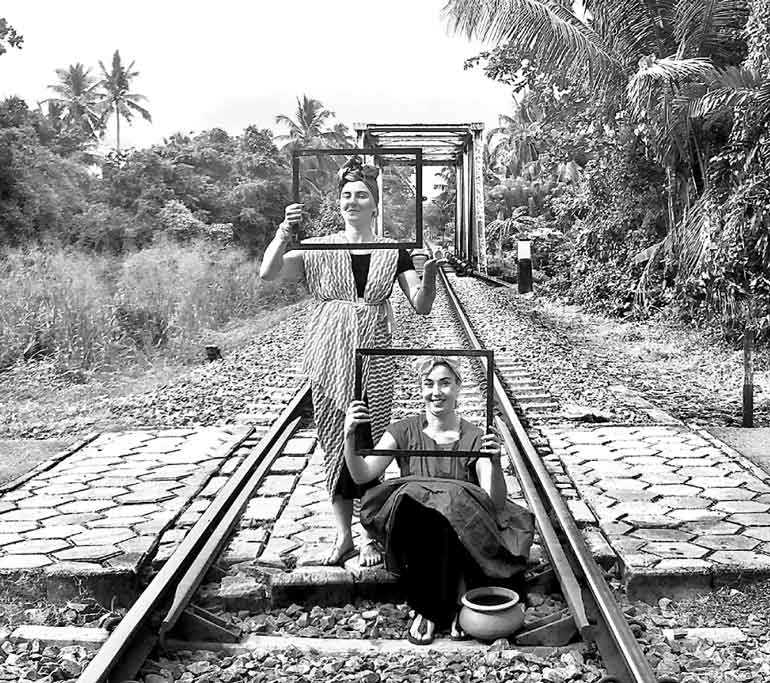Wednesday Feb 18, 2026
Wednesday Feb 18, 2026
Saturday, 1 December 2018 00:00 - - {{hitsCtrl.values.hits}}

‘The Snowball Effect’ is a remarkable international production that brings together theatre, music and visual art to explore the making of communities and borders.
Produced by UZ Arts and funded by Creative Scotland, Arts Council England and the Insitu network, ‘The Snowball Effect’ has been created to be performed in public space and will tour Europe in 2019 and 2020. The performance’s Sri Lankan premiere takes place at Sura Medura International Artist Residency Centre in Dodanduwa on Saturday 8 and Sunday 9 December.
“‘The Snowball Effect’ is a powerful and exciting production that brings together international and Sri Lanka artists to explore how we live together. Its subject could not be more relevant at a time when communities feel threatened and ideas of truth and fairness are under attack by international forces. As in all Sura Medura projects the production is inspired by Sri Lanka and its people and culture and the themes of cooperation and identity,” Neil Butler Director Sura Medura explained.
This international production brings together theatre, music and visual art in order to explore the establishment of a community and its boundaries.
‘The Snowball Effect’ will be directed by Matteo Lanfranchi (Italy), and will be performed by artists and performers: Aneta Fodorova (Czech Republic), Florent Mehmeti (Kosovo), Dave House (UK), Sita Pieraccini (UK), Zephyr Liddell (UK), Tim Hinam (France), Helen Statman (UK), Trevor Stuart (Australia), Fabrice Deperrois (France).
They will be joined by Sri Lankan performance artists Arun Welandawe-Prematilleke, Tehani Chitty, Jagath Manuwarna and Venuri Perera this week, where all the artists would come together to rehearse the final performance piece that will be premiered at Sura Medura.
The group is working on their individual art projects; whilst observing and absorbing the Sri Lankan culture, political landscape and the aesthetic elements that entwines in the art, music and theatre. During the residency, the artists questioned the possibility of working in a simple and direct way on important themes, such as the sense of identity and community and borders. The desire is to find a language simple enough to be universal, whilst remaining poetic and profound. Art has the power to make people think, and to do so it must reach its public.
The format of the project calls for the public to experience the establishment of a community through a number of activities. At the beginning, the public is divided into two random groups, who embark on a voyage to discover the legends of their origins of their new community, and to build a miniature village that represents their space. Halfway through their journey, when they are ready to meet up with the other community, they discover there is a divide.
Through a series of short performances they discover aspects of the other culture they were unaware of and realise they have a distorted view of what is different. They eventually meet the other community, with the possibility to choose if they want to accept them or maintain a division. This format allows people to tackle current issues such as prejudice, discrimination, racism, cultural differences and conflicts.
The performance will commence at 4:45 p.m. each day at Sura Medura International Artist Residency Centre in Dodanduwa.
For a sneak peak on what the artists in residence this time around has been up to visit www.facebook.com/suramedura.